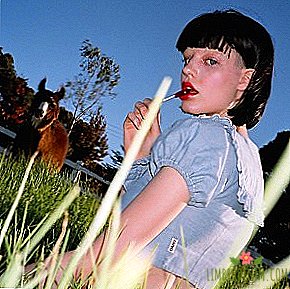Link of the day: Artist Catherine Nenasheva about torture in the DPR
ONLINE "LINK OF THE DAY" We recommend materials from other publications on topics that deserve attention.

I remember the super-big sense of disorientation - it is clear that they put on the bag, push it, I *** [fell] down the stairs, no one, of course, did not lead by the handle. They shove them into some kind of truck or something, most likely it was a truck.
There was already a dude who was screaming so that I do not even know how to swear like that yet. Probably learn soon. In general, there is a dude sitting there and yelling that we will now be blown up by mines, that we will regret now that we were born, that we are corpses.
The truck closed, they turned on some very loud music, the car went, and a full *** started, the dude began to beat us, he was really screaming. For twenty minutes, I was there two, three or four times survived birth and death, because he spoke a lot of hellish things - about the exploding of mines, and about dismemberment, and about the stun gun, and also beat - not very much, but so, ok. And forbade to speak at all, first move, then speak forbid.
““ Yelling that we will be blown up by mines. ”Activist Catherine Nenasheva about torture in the DPR”, BBC
Yesterday, on the Day of Support for Victims of Torture, artist and activist Catherine Nenasheva told how in May 2018 she was held hostage and tortured in the territory of the self-proclaimed Donetsk People's Republic. Nenasheva came there with her friend S. to visit her grandmother’s grave and find out what happened to her grandfather’s house, which was taken out of Gorlovka after the start of the war. According to Nenasheva, on the second day after their arrival, they were detained by police, after which they were interrogated in the police station, and then "they put black bags and handcuffs on them, shoved them into a truck, took them away to an unknown side" and began to torture them, releasing only at the end of the next day. After the incident, the post-traumatic syndrome developed in Nenasheva, and now the activist plans to start a project on mutual support and assistance in social adaptation for people who have experienced violence.
Cover: Catherine Nenasheva / Facebook




